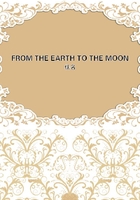
第18章
In his Columbiad charges Rodman employed a powder as large as chestnuts, made of willow charcoal, simply dried in cast-iron pans. This powder was hard and glittering, left no trace upon the hand, contained hydrogen and oxygen in large proportion, took fire instantaneously, and, though very destructive, did not sensibly injure the mouth-piece."Up to this point Barbicane had kept aloof from the discussion;he left the others to speak while he himself listened; he had evidently got an idea. He now simply said, "Well, my friends, what quantity of powder do you propose?"The three members looked at one another.
"Two hundred thousand pounds." at last said Morgan.
"Five hundred thousand," added the major.
"Eight hundred thousand," screamed Maston.
A moment of silence followed this triple proposal; it was at last broken by the president.
"Gentlemen," he quietly said, "I start from this principle, that the resistance of a gun, constructed under the given conditions, is unlimited. I shall surprise our friend Maston, then, by stigmatizing his calculations as timid; and I propose to double his 800,000 pounds of powder.""Sixteen hundred thousand pounds?" shouted Maston, leaping from his seat.
"Just so."
"We shall have to come then to my ideal of a cannon half a mile long; for you see 1,600,000 pounds will occupy a space of about 20,000 cubic feet; and since the contents of your cannon do not exceed 54,000 cubic feet, it would be half full; and the bore will not be more than long enough for the gas to communicate to the projectile sufficient impulse.""Nevertheless," said the president, "I hold to that quantity of powder. Now, 1,600,000 pounds of powder will create 6,000,000,000 litres of gas. Six thousand millions!
You quite understand?"
"What is to be done then?" said the general.
"The thing is very simple; we must reduce this enormous quantity of powder, while preserving to it its mechanical power.""Good; but by what means?"
"I am going to tell you," replied Barbicane quietly.
"Nothing is more easy than to reduce this mass to one quarter of its bulk. You know that curious cellular matter which constitutes the elementary tissues of vegetable? This substance is found quite pure in many bodies, especially in cotton, which is nothing more than the down of the seeds of the cotton plant.
Now cotton, combined with cold nitric acid, become transformed into a substance eminently insoluble, combustible, and explosive.
It was first discovered in 1832, by Braconnot, a French chemist, who called it xyloidine. In 1838 another Frenchman, Pelouze, investigated its different properties, and finally, in 1846, Schonbein, professor of chemistry at Bale, proposed its employment for purposes of war. This powder, now called pyroxyle, or fulminating cotton, is prepared with great facility by simply plunging cotton for fifteen minutes in nitric acid, then washing it in water, then drying it, and it is ready for use.""Nothing could be more simple," said Morgan.
"Moreover, pyroxyle is unaltered by moisture-- a valuable property to us, inasmuch as it would take several days to charge the cannon. It ignites at 170 degrees in place of 240, and its combustion is so rapid that one may set light to it on the top of the ordinary powder, without the latter having time to ignite.""Perfect!" exclaimed the major.
"Only it is more expensive."
"What matter?" cried J. T. Maston.
"Finally, it imparts to projectiles a velocity four times superior to that of gunpowder. I will even add, that if we mix it with one-eighth of its own weight of nitrate of potassium, its expansive force is again considerably augmented.""Will that be necessary?" asked the major.
"I think not," replied Barbicane. "So, then, in place of 1,600,000 pounds of powder, we shall have but 400,000 pounds of fulminating cotton; and since we can, without danger, compress 500 pounds of cotton into twenty-seven cubic feet, the whole quantity will not occupy a height of more than 180 feet within the bore of the Columbiad. In this way the shot will have more than 700 feet of bore to traverse under a force of 6,000,000,000litres of gas before taking its flight toward the moon."At this juncture J. T. Maston could not repress his emotion; he flung himself into the arms of his friend with the violence of a projectile, and Barbicane would have been stove in if he had not been boom-proof.
This incident terminated the third meeting of the committee.
Barbicane and his bold colleagues, to whom nothing seemed impossible, had succeeding in solving the complex problems of projectile, cannon, and powder. Their plan was drawn up, and it only remained to put it into execution.
"A mere matter of detail, a bagatelle," said J. T. Maston.